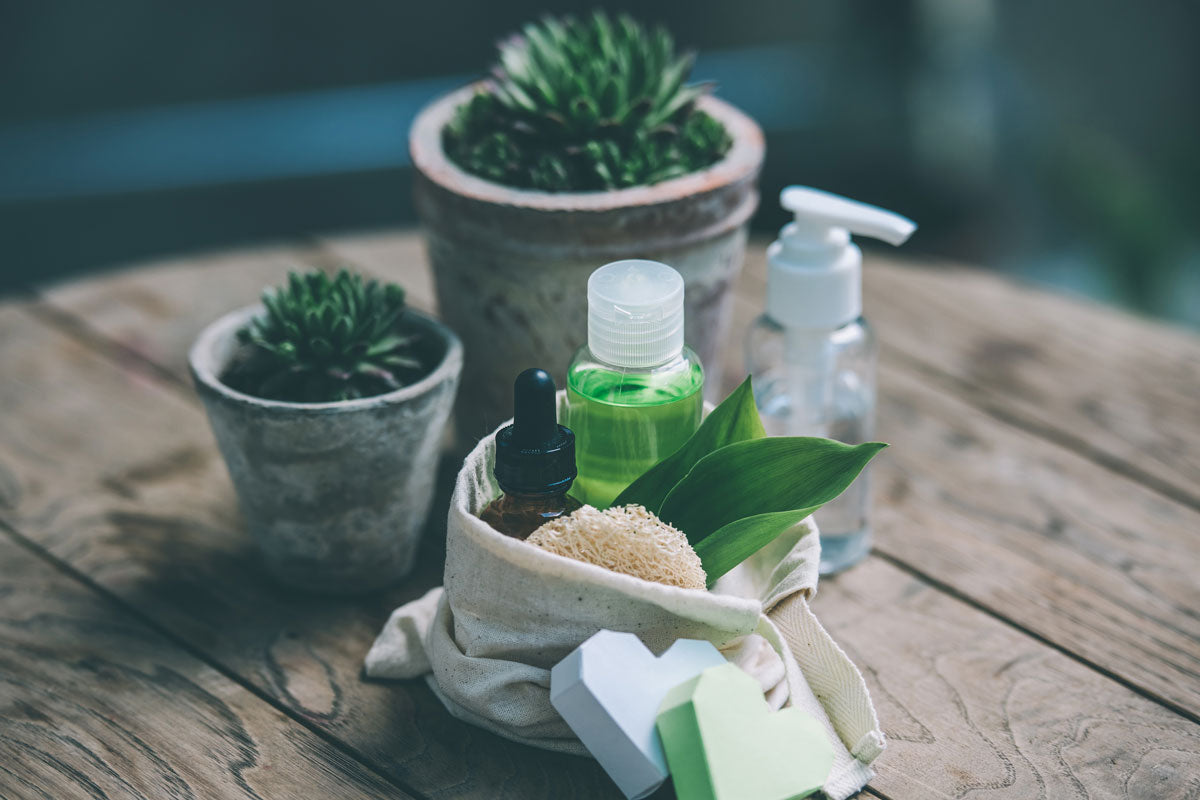How to choose ethical skincare

Choices. Every day we are faced with thousands. So it helps to know exactly what your stance on a situation is before it arises. When it comes to skincare there are many, so this is your opportunity to pick exactly which points rank highest on your 'non negotiable list'. Choose your top two (to start!), and stick to them steadfastly.
The ethics of skin care.
The fine line between necessity and luxury when it comes to skincare and hygiene products has been blurred by many years of marketing. We have been conditioned to a point where most of us wouldn't go without toothpaste or feminine hygiene products, though perfumes and makeup can be harder to justify. That said, many companies (while still in the minority) do specialise in not only ethical basics, but also in luxury with a conscience too.
You can have it all, you just need to do your research.
So, to find an ethical company you have to take into account a number of factors...
1. Locally made versus internationally imported
Many of us prioritise supporting local when it comes to fresh fruits, vegetables and meats but think less about it with skin care in mind. When we really think about it, if we're choosing natural, we are choosing a farmer. On that note, why not support your home grown economy? How important to you is it to foster the economic stability of your local area or country versus the global economy? That is point number one for you to ponder.
2. Not tested on animals / vegan friendly
Vegan or not, if this point ranks high on your list the one clear way to identify that you are not supporting animal testing is to look for the Cruelty Free International's 'leaping bunny'. It's a symbol that guarantees the product is not tested on any animals, anywhere in the world.
That right there is an interesting point too. We learn that Europe banned animal testing on products within Europe, though for a while continued to import products that did not fit this brief.
Note that PETA also offers a database of companies that do not test on animals.
How do you feel about the ethics of animal testing? We do know that experimenting on animals can be very helpful for furthering medical science. So if that is the case, does skincare fall into subsequent line? Where do YOU draw the line
Some people argue that ALL animal testing should end because it is wrong to treat animals as tools for furthering knowledge; that animals should have as much a right as a human to live a life free from suffering. Others argue that while it is wrong to unnecessarily abuse animals, animal experimentation must continue because of the enormous scientific resource that animals are able to provide.
Note too that some 100% natural ingredients are toxic for humans and it is through animal testing that we have come to know this result. That said, where do you stand? Let us know in the comments below.

3. Eco friendly packaging / the environmental effect
Most skincare brands choose to use plastic for their packaging, which ultimately ends up in landfill. The minority is designed to be recycled.
That said, we are moving towards glass and even aluminium packaging. Big brands such as The Body Shop are encouraging us to walk into the store to refill our old products, and locally the farmers markets are doing the same - offering shampoos and body scrubs in bulk, walk in with your glass bottle and fill it up.
So, especially with Christmas gift time around the corner, where does the ethics of the packaging lie on your priorities list? Would you be likely to rank free from animal testing and supporting local over and above packaging if it means you were buying a beautifully gift wrapped skin care product?
4. Is considered 'natural', or chemical free, or fragrance free
The skincare industry unfortunately is not properly regulated. In the same way that we drew queries around the definition of organic skincare in this post earlier this week, we raise the point that a product can be considered 'natural' in marketing terms if it contains as little as 1% of natural ingredients. Pair this with the 99% of synthetics and chemicals and your product is naturally concerning!
Why is choosing chemical free important anyway? Bioaccumulation is one huge factor to consider.
As we continue to be exposed to man made chemicals in everyday life, so too does our body continue to accumulate them. These chemicals linger, failing to be broken down by our bodily systems. Some chemicals interfere with our hormones, some may cause cancer, some contribute to chronic fatigue. This is just the start, as for many chemicals the long term effects are unknown.
The major chemicals and toxins found in skincare.
1. Heavy metals. Mostly found in shampoos and antiperspirant deodorants. Mercury, lead, arsenic, aluminium and cadmium accumulate in the soft tissues of our bodies when using these non natural products.
2. Parabens. Found in baby lotions and cosmetics. These are endocrine disruptors, serving to mess with your hormonal balance. Fertility problems and other hormone related issues result.
3. Phthalates. Found in cosmetics, hair spray, mousse, room sprays, colognes and perfumes.
4. Synthetic fragrances. You'll find these in soaps, shampoos, deodorants and perfumes mostly.
5. Toluene. Nail polish is the biggest culprit.
6. VOC's. Perfumes, aftershaves, shampoo, to name a few.
Do you have a favourite natural skincare range? We'd love to hear your thoughts!



















































